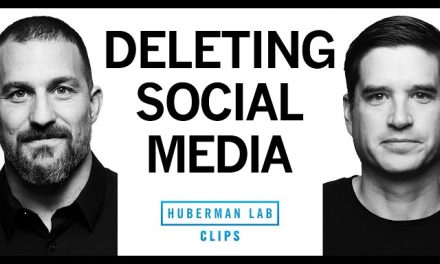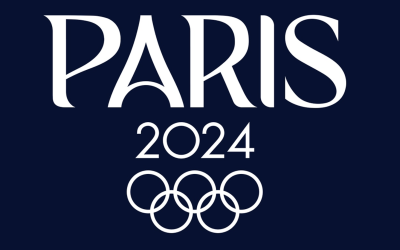Insights into Steve Jobs’s Views on Microsoft and Bill Gates
Steve Jobs, the co-founder of Apple Inc., remains an enduring figure in the annals of technology, renowned not just for his groundbreaking innovations but also for his unreserved and sometimes contentious perspectives on industry rivals, particularly Microsoft and its co-founder, Bill Gates. The recent unearthing of a previously unseen interview from 1995 offers a fresh glimpse into Jobs’ mindset, stirring curiosity about the factors shaping his opinions and his intricate relationship with Microsoft. As we embark on a journey to dissect the multifaceted legacy of Steve Jobs, we find ourselves drawn into the intrigue of his candid commentary regarding Microsoft’s perceived lack of taste, inviting deeper scrutiny into the psyche of this enigmatic titan of the tech world.
Throughout his illustrious career, Steve Jobs was a figure of both reverence and controversy, with his candid remarks often making headlines and fueling debates within the tech community. The resurgence of this 1995 interview, conducted by journalist Robert Cringely for the PBS series “Triumph of the Nerds,” serves as a timely reminder of Jobs’ uncompromising nature and his willingness to speak his mind, even at the risk of ruffling feathers.
At the heart of Jobs’ candid commentary lies a fundamental belief in the power of design and aesthetics—a belief that would come to define Apple’s brand identity and set it apart from its competitors. Jobs’ emphasis on taste and elegance in product design reflects his deeply ingrained philosophy that technology should not only be functional but also beautiful and intuitive—a philosophy that he felt Microsoft and its products often failed to embody.
But what drove Jobs to publicly critique Microsoft and Bill Gates, his counterparts in the tech world? Some speculate that beneath the veneer of rivalry lay a sense of frustration and envy—a recognition that while Apple may have excelled in design and innovation, Microsoft’s widespread dominance in the market had long overshadowed its achievements.
Moreover, the complex relationship between Jobs and Gates adds another layer of intrigue to their interactions. Despite their public sparring, both men harbored a begrudging respect for each other’s contributions to the industry. Jobs admired Gates’ business acumen and Microsoft’s success, while Gates acknowledged Jobs’ visionary leadership and Apple’s cultural impact.
As we dissect Jobs’ candid remarks about Microsoft’s taste, we uncover not just a critique of a rival company but also a reflection of Jobs’ deeply held convictions about the intersection of technology and aesthetics. His belief in the power of design to shape user experiences and evoke emotional responses underscores his enduring influence on the tech industry and his legacy as a visionary innovator.
In the ever-evolving landscape of technology, the legacy of Steve Jobs continues to resonate, reminding us of the importance of bold ideas, relentless innovation, and unwavering conviction. As we unravel the enigma of this tech icon, we are left with a deeper appreciation for his contributions and a renewed sense of curiosity about the complex dynamics that shaped his views on Microsoft and Bill Gates.
For the latest insights into the world of technology and beyond, turn to SFL.Media, your trusted source for reliable and free news in South Florida. Stay informed, stay inspired, and join us on the journey of discovery.
The Resurfacing of Steve Jobs’ Interview: A Rare Glimpse into His Mind
The unexpected emergence of a 1995 interview featuring Steve Jobs, conducted by journalist Robert Cringely for PBS’s “Triumph of the Nerds,” provides a unique window into the thoughts of the Apple co-founder. This rediscovered interview sheds light on Jobs’ perspective and sheds new light on his interactions with industry peers. Within this interview, Jobs directs his criticism towards Microsoft, notably remarking on what he perceives as the company’s deficiency in taste. This bold assertion not only resonates through time but also prompts a reevaluation of Jobs’ dynamics with the tech behemoth, inviting deeper scrutiny into their relationship and the motivations behind his candid remarks.
Steve Jobs vs. Microsoft: A History of Rivalry and Controversy
Steve Jobs’ career was marked by a longstanding rivalry with Microsoft and its co-founder, Bill Gates, characterized by controversy and public sparring. Jobs was unapologetic in his criticisms of Microsoft, often citing what he perceived as the company’s shortcomings in taste and innovation. This rivalry extended beyond mere competition, with Jobs accusing Microsoft of idea theft and other unethical practices. The animosity between Jobs and Microsoft was fueled by a combination of professional rivalry, differing philosophies on technology and design, and personal ambition. These factors contributed to the intense and legendary nature of their feud, leaving a lasting impact on the tech industry and igniting debates about innovation, ethics, and corporate culture.
Unpacking Jobs’ Criticisms: Insights into His Creative Vision and Perfectionism
Steve Jobs’ critiques of Microsoft and Bill Gates provide a window into his creative vision and uncompromising standards. Jobs, known for his design-centric approach, prioritized aesthetics and user experience above all else. He often lamented what he saw as deficiencies in Microsoft’s products, attributing them to a lack of taste and attention to detail. For Jobs, excellence was not just a goal but a fundamental principle, driven by his unwavering belief in the significance of taste and design sensibility in influencing the trajectory of the tech industry. His criticisms underscored his commitment to pushing the boundaries of innovation and setting a high bar for industry standards, shaping his legacy as a visionary leader in the world of technology.
The Complex Relationship Between Jobs and Gates: Rivalry, Respect, and Mutual Influence
Steve Jobs and Bill Gates shared a nuanced relationship marked by rivalry, mutual respect, and reciprocal influence. Despite Jobs’ public criticisms of Gates and Microsoft, he also acknowledged Gates’ significant contributions to the tech industry. Likewise, while Gates frequently found himself on the receiving end of Jobs’ sharp remarks, he respected Jobs’ visionary leadership and acknowledged his profound impact on the industry. Their complex dynamic reflected a mixture of competition and admiration, with both individuals recognizing each other’s strengths and contributions while also vying for dominance in the ever-evolving landscape of technology.
The Legacy of Steve Jobs: Lessons in Innovation, Leadership, and Vision
Steve Jobs’ legacy is a testament to his profound influence on the realms of technology and beyond. His relentless pursuit of excellence, unwavering commitment to innovation, and steadfast dedication to his creative vision serve as enduring inspirations for generations of entrepreneurs and innovators. Despite his sharp criticisms of Microsoft, Jobs’ overarching passion for pushing boundaries and disrupting the status quo remains a hallmark of his legacy. His impact transcends mere rivalry, leaving an indelible mark on the industry and serving as a guiding light for those who strive to redefine possibilities and revolutionize the world through innovation and visionary leadership.
The recently surfaced interview with Steve Jobs offers a captivating glimpse into the psyche of a tech luminary whose influence reverberates throughout our modern world. This rediscovered dialogue serves as a portal into the mind of a visionary, shedding light on the complexities inherent in innovation, rivalry, and creative expression within the tech industry.
As we delve into Jobs’ candid remarks regarding Microsoft’s taste, we are compelled to contemplate the multifaceted nature of his insights. Beyond mere criticism, his words offer profound insights into the intersection of design, innovation, and corporate culture. Jobs’ emphasis on taste underscores his unwavering commitment to excellence and his belief in the transformative power of design to shape user experiences and define industry standards.
Moreover, Jobs’ critique of Microsoft serves as a reminder of the intricate dynamics that define competition in the tech landscape. While rivalry may fuel innovation, it also highlights the divergent philosophies and approaches that drive companies forward. In this context, Jobs’ commentary invites us to reflect on the role of competition in fostering progress and driving industry evolution.
In the spirit of Steve Jobs’ enduring legacy, we are inspired to embrace a mindset of continual innovation and boundary-pushing. His relentless pursuit of excellence challenges us to push beyond our comfort zones, embrace risk-taking, and embrace the transformative potential of design and innovation. By channeling Jobs’ visionary spirit, we can aspire to leave a lasting impact on the world around us, shaping the future through our creative endeavors and technological advancements.
For those seeking to stay abreast of the latest developments in the world of technology and beyond, SFL.Media stands as a beacon of reliable and free news in South Florida. With a commitment to delivering timely insights and in-depth analysis, SFL.Media empowers readers to stay informed, stay inspired, and embark on a journey of discovery. Join us as we navigate the ever-evolving landscape of technology and uncover the stories that shape our world.






























South Florida Media Comments